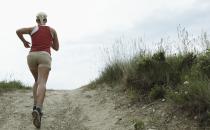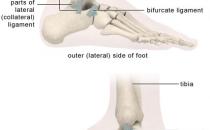Nutrition for exercise
It’s very likely that you’ve seen tennis players eating bananas during a match, cyclists in the Tour de France gulping sports drinks, or football players eating oranges at half-time. This is because what you eat before, during and after exercise can affect how well you perform. A well-planned diet will support your training programme and help you to recover more quickly, reducing your risk of getting injured. You also need to eat to stay in good health and reduce your risk of illness or overtraining.
This article explains how many calories you need each day and what you should eat before, during and after exercise to keep you in tip-top shape.
Keeping your energy up
How much energy do you need?
Before exercise
During exercise
After exercise
Vitamin and mineral supplements
Puntos de acción
Keeping your energy up
We all know what it feels like when you have been exercising for a while – you feel hot and it’s hard to keep going. Carbohydrates, proteins and fats all provide energy for exercise. When you exercise, your body needs extra energy (calories) because it’s working harder. Energy helps to maintain your body weight, keep you healthy and maximise how well you train and perform. If you don’t get enough energy in your diet, you will feel weak and tired.
Over time, your muscles and bones may weaken, and you may be at an increased risk of illness and injury.
How much energy do you need?
You can estimate your daily energy needs by working out your basal metabolic rate (BMR). This is the number of calories you burn at rest over 24 hours and how many you need to keep your body functioning properly.
| Age | Men | Women |
| 10 to 18 | (weight in kg x 17.5) + 651 | (weight in kg x 12.2) + 746 |
| 19 to 30 | (weight in kg x 15.3) + 679 | (weight in kg x 14.7) + 479 |
| 31 to 60 | (weight in kg x 11.6) + 879 | (weight in kg x 8.7) + 829 |
| 60+ | (weight in kg x 13.5) + 487 | (weight in kg x 10.5) + 596 |
You can then multiply your BMR by your physical activity level (PAL) to work out how many calories you need each day.
| Activity description | PAL |
| Mostly inactive or sedentary (sitting) | 1.2 |
| Fairly active (walking and light exercise) | 1.3 |
| Moderately active (exercise two to three times a week) | 1.4 |
| Active (exercise more than three times a week) | 1.5 |
| Very active (exercise daily) | 1.7 |
For example, a moderately active 40-year-old woman who weighs 65 kilos would need:
BMR = (65 x 8.7) + 829 = 1394.5 Kcal
Daily energy requirement = 1394.5 x 1.4 = 1952.3 Kcal
Before exercise
What you eat before exercising will determine how much energy you have and how well you perform. Not eating the right foods may mean you struggle to complete your workout and you won’t be able to do your best.
Ideally, try to eat a small meal two to four hours before exercising. This will increase your liver and muscle glycogen levels – glycogen is the fuel that provides energy – which will allow you to train at your best and keep going for longer. Try to make sure that whatever you eat before exercising contains a moderate amount of protein to help with recovery after exercise and high amount of carbohydrate to increase blood glucose. Keeping it low in fat and fibre will help to prevent digestive problems, such as stomach pain and feeling sick. You may need to experiment with timings of your pre-exercise meal to make sure that you don’t feel uncomfortable once you start getting active.
The table below has some ideas for snacks and meals before exercise.
| Pre-exercise meals |
|
• Sandwich filled with chicken • Pasta with tomato-based sauce and vegetables • Baked beans on toast • Porridge made with low-fat milk |
| Pre-exercise snacks |
|
• Bananas (ripe) • Smoothie made with low-fat milk • Cereal or energy bar • Diluted squash (not sugar-free) |
If you’re taking part in a competition and planning on exercising for longer than 90 minutes, perhaps running a marathon or taking part in a long-distance cycle race, it’s a good idea to follow a carbohydrate-loading programme. This involves reducing your training and increasing how much carbohydrate you eat in the final three days before the event. Ideally, you should eat eight to 10 grams of carbohydrate per kilogram of body weight.
During exercise
Eating during exercise helps to provide carbohydrate to your working muscles, and meet daily energy and nutrient requirements. This is especially important when you’re exercising continuously for longer than an hour. It will stop you from getting tired too quickly and help you perform at your best.
If you’re exercising for more than one hour, try to eat 60 to 80 grams of carbohydrate every hour. You can either get this from a sports drink or a more solid snack. Sports gels are convenient but they don’t provide fluid so you also need to drink water to prevent you from getting dehydrated. The table below has some ideas for snacks during exercise.
| Food or drink | Portion size providing 30g carbohydrate | Portion size providing 60g carbohydrate |
| Bananas | 1 to 2 medium | 2 to 3 medium |
| Isotonic sports drink |
500ml (1 bottle) |
1000ml (2 bottles) |
| Raisins | 1 handful | 2 handfuls |
| Cereal bar | 1 bar | 2 bars |
After exercise
When you have finished exercising, the last thing you may want to do is eat a meal or snack. But it’s really important that you eat something soon after exercise to replenish your stores of glycogen. How much and when you eat will depend on the length and intensity of your workout and when you plan to exercise next.
Try to eat within the first 30 minutes after exercising. After that, aim to eat 1 to 1.5 grams of carbohydrate per kilogram of body weight every two hours for up to six hours afterwards. For example, if you weigh 60 kilos you need to eat 60 to 90 grams of carbohydrate. If you don’t plan on doing your next workout for a day or so, then eating a meal containing plenty of carbohydrate should be enough to top up your glycogen stores. Including protein in whatever you eat after exercising may be beneficial because it helps to build and repair your muscle tissue. The table below has some idea for snacks after exercise.
| Post-exercise snacks |
| 1 or 2 cartons of fruit yoghurt |
| 1 sports bar (containing carbohydrate and protein) |
| Handful of dried fruit and nuts |
| 1 smoothie |
Vitamin and mineral supplements
In general, if you eat a healthy, well-balanced diet, you should get all the vitamins and minerals you need. You don’t need to take supplements unless you have specific medical or nutritional needs. Speak to your GP or a sports dietician for more information.
Action points
- Eat a meal or snack that contains carbohydrate two to four hours before exercising.
- Try taking in 60 to 80 grams of carbohydrate every hour during exercise sessions lasting longer than one hour. You could try sports drinks or gels, or a banana.
- After exercising, eat a meal that contains plenty of carbohydrates and protein to help repair your muscle tissue and top up your glycogen stores.
Sources
- American College of Sports Medicine, American Dietetic Association and Dietitians of Canada Joint Position Statement. Nutrition and Athletic Performance. Med Sci Sport Exer, 2009; 41(3):709–31
- Bean A. Sports Nutrition. 6th ed. London: A&C Black, 2010
- Bean A. Food for fitness. 3rd ed. London: A&C Black Publishers Ltd, 2002:47
- Department of Health. Dietary reference values for food energy and nutrients for the United Kingdom. London: HMSO, 1991
- Smith JEW, Zachwieja JJ, Horswill CA, et al. Evidence of a carbohydrate dose and prolonged exercise performance relationship. Med Sci Sport Exer, 2010; 42(5):84. doi:10.1249/01.MSS.0000385615.40977.c3
















